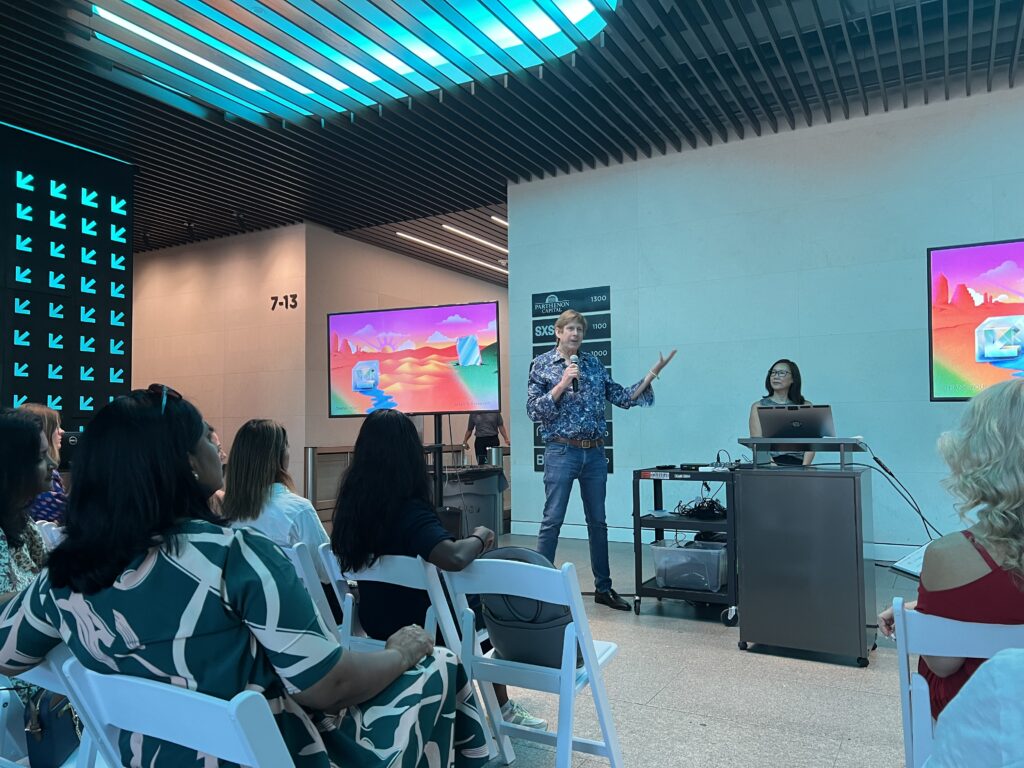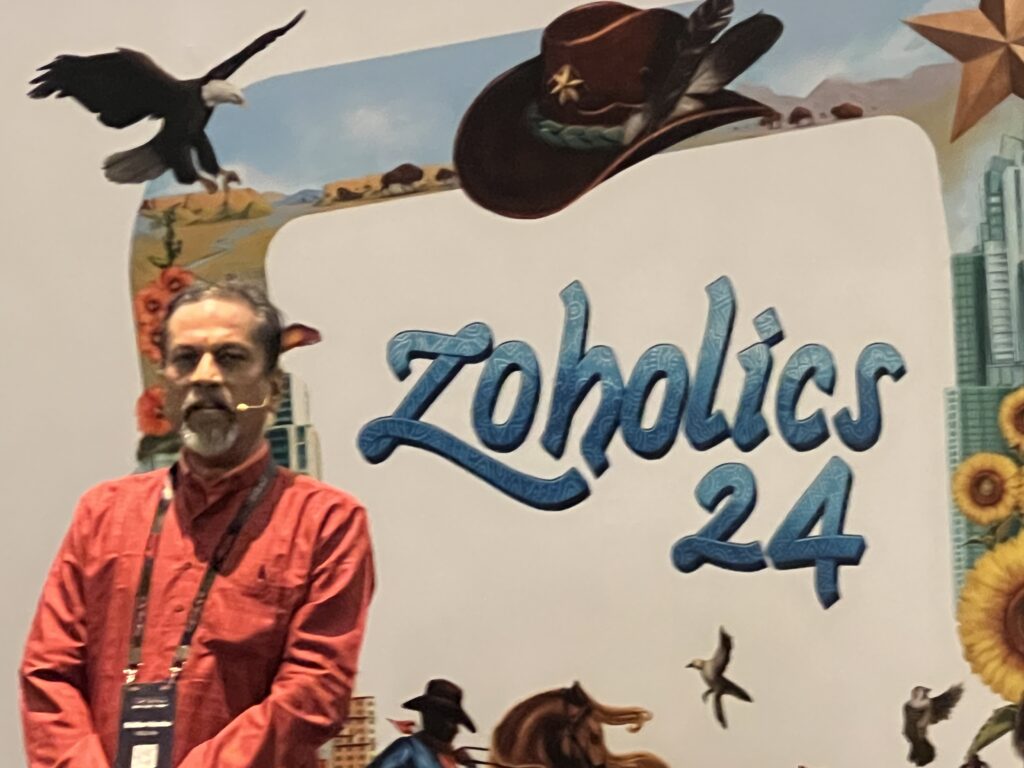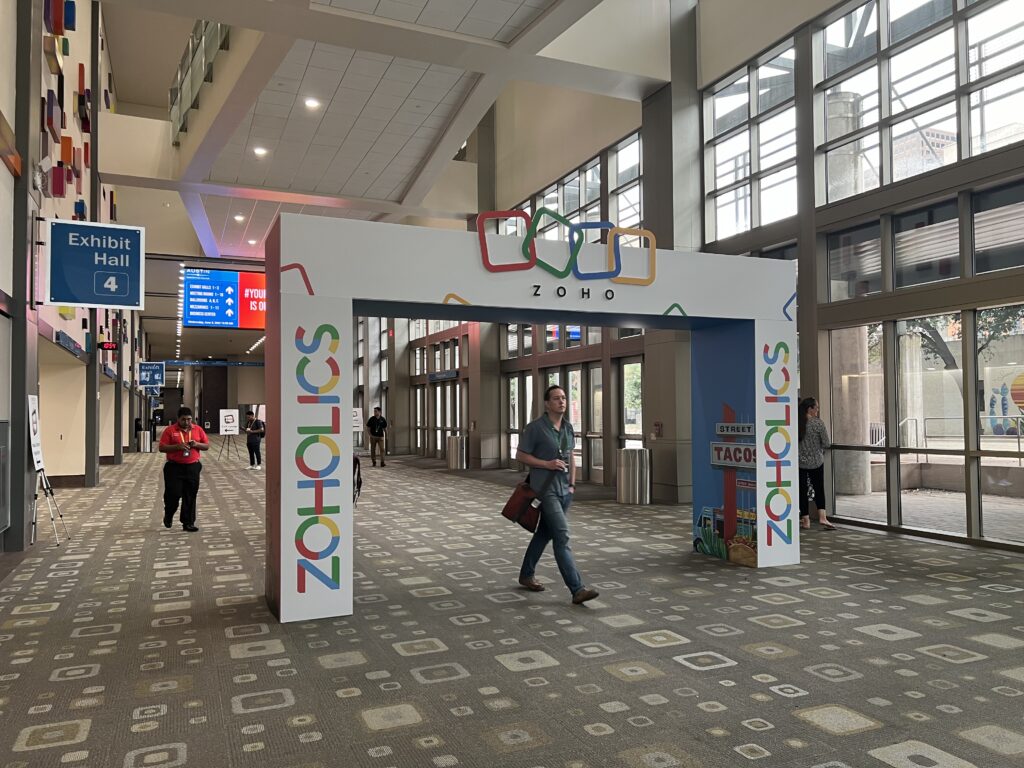
At SXSW headquarters in downtown Austin, Hugh Forrest, co-president and chief of programming, provided insights on how to prepare a proposal for the SXSW panel picker on Thursday morning.
Every year, SXSW gets more than 4,500 submissions from people eager to speak or present at SXSW. It only accepts about 15 percent of the submissions. So, it is a highly competitive process.
But some tips will put you ahead of the crowd. Forrest said the first tip is to get your polished presentation in on time. Others are to ensure it’s free of errors and a unique idea you haven’t presented elsewhere. Originality is vital to a great submission, he said. Also, authors should only present books published since June 2024, said Monica Sack with the SXSW conference programming team.
According to SXSW, “Artificial intelligence will again be huge at SXSW—“again” because it was huge in 2024.” But the conference is much more than an AI conference, Forrest said.
“Ultimately, SXSW is all about the power of creativity in all its many, many, many forms,” Forrest said. “And also about the power of face-to-face connections.”
The Greater Austin Chamber of Commerce sponsored the Tacos & Topics talk.
Here are ten other key takeaways from today’s talk:
- Conference Dates and Structure: SXSW 2025 will run from Friday, March 7th through Friday, March 14th. The first part of the week focuses more on tech content, while the second part shifts to music content. Film and TV content is interspersed throughout the event.
- Importance of Community: SXSW strongly emphasizes local (Austin) and virtual communities to generate the best ideas and showcase up-and-coming thought leaders and industry experts.
- Panel Picker Process: The Panel Picker process collects ideas from the community, followed by public voting and internal review. It aims to bring in new voices and expand into various verticals.
- Application Details: The application period runs from June 25th to July 21st. Public voting on proposals begins on August 6th and ends on August 18th. Adhere to deadlines and submission guidelines.
- Diverse Topics: SXSW 2025 will cover many topics, including regenerative agriculture, quantum computing, transportation, health tech, sustainable energy, culture, climate change solutions, and mental health.

6. Format Options: Various session formats are available, including panel presentations, fireside chats, book readings, workshops, short-form presentations, meetups, and mentor sessions. Each format caters to different learning and interaction styles.
7. Proposal Tips: Successful proposals should meet deadlines, carefully choose appropriate formats, consider all programming topics, and focus on specific, unique ideas. Proposals should be differentiated and offer fresh perspectives.
8.. Diversity and Inclusion: Panels should include diverse voices based on gender, race, location, and employment to provide a more holistic discussion.
9. Public Engagement: The public voting period allows the community to vote and comment on proposals, ensuring a democratic selection process that values diverse opinions.
10. Additional Opportunities: Besides the Panel Picker, SXSW hosts other competitions, such as the startup competition (similar to Shark Tank) and the Innovation Awards. These provide additional platforms for showcasing innovation and creativity.










